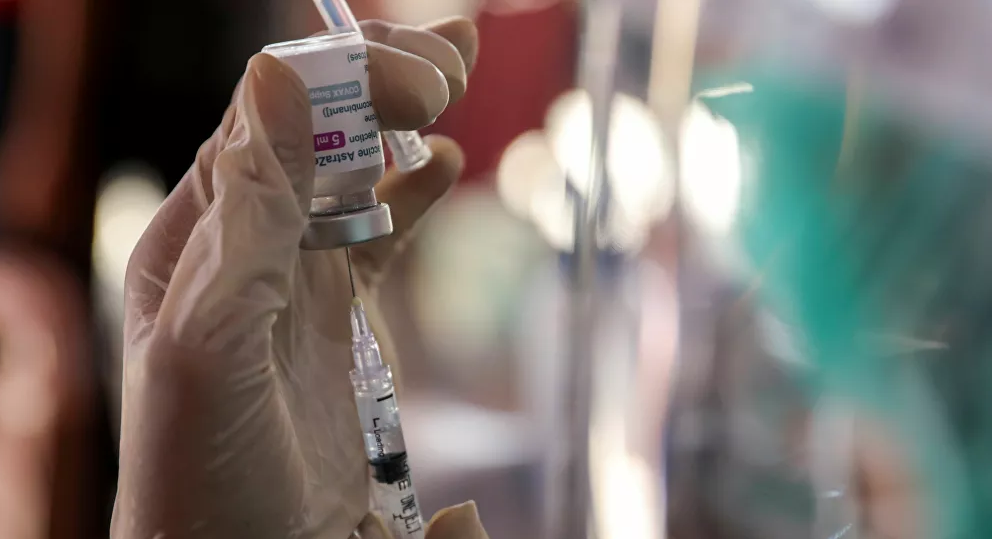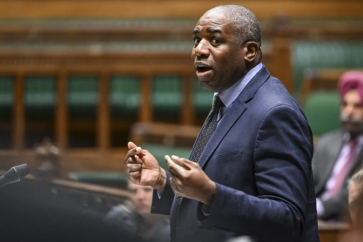The UK is gradually coming out of lockdown in line with a government-charted roadmap, twice weekly testing for everyone in England announced, and encouraging data on the vaccine rollout across the nation.
Professor Neil Ferguson, aka “Professor Lockdown – an advisor from the Scientific Advisory Group for Emergencies (SAGE) – has urged tighter UK border controls to keep the South African coronavirus variant at bay, which has been spreading in some European countries struggling with a third COVID-19 wave.
“Perhaps of more concern for the UK though is that some countries are notably seeing a significant fraction, five to 10 per cent of cases, of the South African variant. When infection levels go up in France, to 30,000 cases a day, that implies there’s at least 1,500 to 2,000 cases a day of the South African variant. That is the variant we really do want to keep out of the UK,” Ferguson told BBC Radio 4’s Today program.He added that “important decisions” lay ahead as the country gradually eases coronavirus restrictions, including those relating to international travel.
Ferguson, whose forecasts during the first onslaught of the pandemic in 2020 are believed to have prompted UK ministers to announce a spring shutdown, has now warned that the South African strain is responsible for up to 20 percent of infections in some countries on the Continent.
The Imperial College London epidemiologist, who revealed that he’s had the AstraZeneca jab, urged government ministers to exercise caution when considering loosening restrictions on international travel.
“I think the key thing is the risk of importing variants which might undermine our vaccination program and the one we’re particularly concerned about at the moment is the South African variant called B.1.351,” he said.
The UK has already vaccinated over 31 million Brit with a first dose of either the AstraZeneca or Pfizer vaccine, which is more than half the adult population.
The EU, on the other hand, has been criticized for its lacklustre inoculation drive, leaving countries bickering over scant supplies of jabs.
According to the UK health expert, immunity sparked by AstraZeneca’s jab is “particularly vulnerable” to the mutant B.1.351 strain. The mutation was first identified in South Africa late last year. To date, 469 cases of the variant have been identified in the UK, writes the Daily Mail.
South Africa acquired AstraZeneca shots from the Serum Institute of India, which is making the vaccine under license. However, in February the country suspended its jab rollout to health workers after a small study seemed to show the vax largely ineffective in preventing symptoms of mild disease caused by the virus variant. The vaccines were subsequently resold to other African nations in March.
A second study by Oxford University found the jab triggered seven times fewer antibodies against the strain compared to the original virus.
“While we’ve done very well in the vaccination program so far we’re only about half way through and we’re very dependent on the AstraZeneca vaccine at the moment. The AstraZeneca vaccine as we know is particularly vulnerable to the South African variant,” said the epidemiologist.“As time goes on and we can roll-out the Novavax vaccine, and Moderna, which are perhaps less vulnerable then we’ll have more leeway so it is a balancing act,” added Ferguson.
Pfizer has since claimed its jab is 100 percent effective against the COVID-19 mutation, based on a study on 8,000 people in South Africa.
This comes as some EU countries have suspended the use of AstraZeneca due to reported thromboembolic complications.
The European regulator is investigating the incidents, while saying it’s safe to continue using the jab.
AstraZeneca’s vaccine may not be suitable for young people if studies confirm it is linked to blood clots, stressed Ferguson.
With data suggesting the blood clot issue affects just one in 600,000 people given the jab (0.00017 per cent), the professor said older and middle-aged groups should get the vaccine because the threat of coronavirus far outweighs the risk of the clots.
The warning voiced by Ferguson come as Boris Johnson gears up to unveil the “traffic light” system allowing Brits to travel abroad, with countries ranked red, amber, or green based on a plethora of criteria.
As much of Europe enters new lockdowns, the proposed UK plans for designating destinations abroad based on criteria including percentage of vaccinated population, COVID-19 infection rates, and any emerging variants, Ferguson said:
“I think where the real policy challenge lies in terms of mitigating risk is around what to do around travel to Europe and back. I think that (testing everyone from European countries) would be sensible and reconsidering the exemptions in place at the moment.”The easing of restrictions will come with a new mass testing program, where everyone in England will be able to take a COVID-19 test twice a week in a new drive to winnow out cases without symptoms.
Johnson has laid out a sweeping plan for stage-by-stage easing of restrictions in the coming months, to allow for the reopening of the country and rebooting the pandemic-crippled economy.
Source: Sputnik




